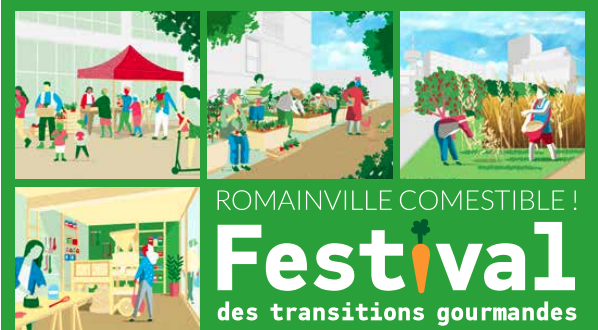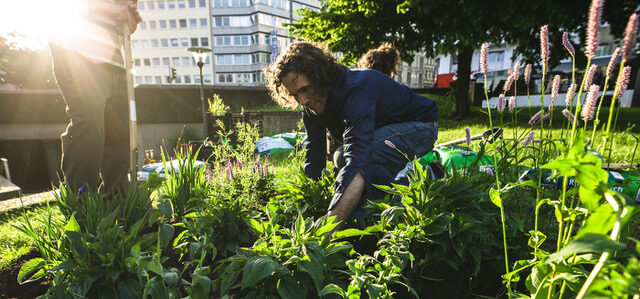For thousands of years humans have built cities in which they would work and live – integrated in a local community and protected against the unpredictabilities of the outside world. Each day, the urban environment surrounding us, enables and influences what we do and how we feel. But as integral as the city is to our lives, we have neglected it in recent decades, leaving urban spaces exposed to a multitude of challenges. This starts with 91% of the world’s population living in places where air pollution levels exceed WHO guideline limits. Meanwhile, concrete buildings and roads eat up green spaces and the habitat of local species. With more than two thirds of the world population expected to live in cities by 2050, the pressure on biodiversity is likely to increase further.
However, as rich as the challenges facing our today’s cities and food systems are, so are the talents and ideas of young people to break the centuries-old dichotomy of nature and city which is best reflected in our industrialised and resource-intensive food systems. This is what inspires the yearly UrbanFarm challenge which is organised by the University of Bologna and starts now into its fourth round. Supported by funding from the European Union, the event brings together students from across Europe, scientific disciplines, and academic levels, to develop innovative concepts for more sustainable food systems.
Besides the restoration and protection of urban ecosystems, the challenge will put a focus on social equity and local growth, reflecting the multi-dimensional impact food systems have on our societies. Trying to capture the regional diversity of Europe, a place of cultural exchange and aggregation in the Italian city of Bologna and a neighbourhood in the Swedish capital of Stockholm have been chosen as locations for which the students will design models for urban farming, circular consumption, and social inclusion.
While the best project in each location will be awarded with a monetary prize of 4,000 euros, all participants will go home with practical knowledge in how to structure and present a comprehensive intervention project thanks to a series of ‘Rendez-vous’ which will accompany the challenge and provide the participants with insights from international experts in the fields of agriculture, architecture and economics.
About 10,000 years ago, agriculture opened the door to stable food supplies, letting hunters to come together and build dwellings that eventually transformed into complex modern cities. The way we produce food is hence intrinsically connected to our cities. Now it is once again time to change our food systems to enable today’s and tomorrow’s generations to have a sustainable existence in the city. Follow the UrbanFarm Challenge 2022 to see how this can be done!





